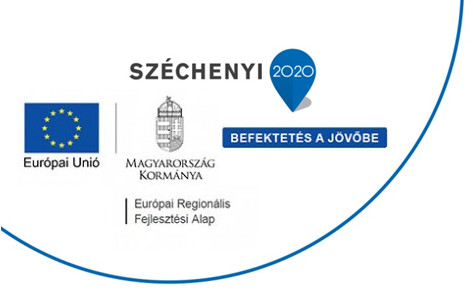School
SCHOOL
German Nationality Primary School of Újhartyán
Address: 2367 Újhartyán Zrínyi Miklós street 1.
School director: László Bambuk
Deputy directors: Erika Kleineisel, Ágnes Balázs - Jánosik
Phone contact: +36 29/372-168
Fax: +36 29/373-030
Email: iskola@ujhartyan.hu; nemetisk@gmail.com
Introduction of the German Nationality Primary School of Újhartyán
The history of teaching in Újhartyán has been documented since 1781. Our current school building was built in 1962, since then it has been extended and renovated several times, and in 2000 it received an Architectural Award of Excellence. Since 1998, it has been operating as a German national primary school and is still the intellectual centre of the town.
In our school, from the first grade onwards, we strive to keep children's curiosity and playfulness awake. It is essential that they learn to study. It is important that the knowledge they acquire is not just a goal, but a tool, a guide to help them live a fulfilling life.
A particular feature of our institution is that we teach German as a national language from the first year onwards, for five hours a week. In accordance with the principle of gradualism, we try to enrich the classes with games, poems, music and dance at the beginning, while in the upper grades we focus on communication. They learn about the history, songs, music and dances of Újhartyán and the Germans in Hungary in a playful way, building on traditions. They participate in traditional school events that strengthen their identity and sense of belonging to the community. We regularly organize German language camps. Every year, our school participates in international projects where German is the shared language (Austria, Germany). Since 1991, our school has had a national dance group, which has been active in the cultural life of the town.
The German nationality programme is open to people belonging to the German minority or those who want to learn the culture and language.
In addition to teaching the national language, we also place a strong value on the teaching of general studies.
In addition to education, we also aim to provide a range of opportunities for productive activities (sports, dance, etc...)
The effectiveness of our arts and crafts courses is proven by the fact that several of our students have continued their studies at arts universities.
After eight years in our school, the doors of highly regarded schools and vocational colleges, such as those in Budapest, are open to our students like: Német Nemzetiségi Secondary school, Apáczai-Csere János Secondary school, Kossuth Lajos Secondary school. In the local region: Táncsics Mihály High School, Bolyai János Secondary school.
Pedagogical - Educational goals and aims in our school
• Developing solid basic skills - reading, mathematics, writing and spelling, reading comprehension, communication skills
• Establishing the right learning methods (timetable, daily routine, weekly cycle)
• Creating a pleasant, cozy school environment and relaxed learning conditions.
• Experience, practice-oriented teaching and activity-based lessons. German ethnography, Interactive history classes and the demonstration of historical tools, weapons, clothing and museum visits and natural science classes in the framework of the Öveges Programme.
• To promote the German language, establish contacts with German nationality primary schools in Pest County, initiate German language correspondence with sister cities in Germany, organize nationality traditional events.
• Organizing and running Swabian Days.
• Strengthening environmental responsibility. Participation in the "You pick it up" national waste campaign. Educating people to respect and preserve environmental values (selective waste management, bird conservation, putting out bird feeders, Earth Day)
• Making the most of the opportunities offered by daily physical training. Encouraging students to take up physical activity and improve their fitness. Spending free time in an active and useful way.
• Promote healthy diets (fruit and vegetable days), organize a health week in April.
• Striving for interactive tools in education
• Organizing open classes and days for parents.
• To prepare students for secondary school according to their interests, abilities and talents.
• Visual arts education through drawing, creating a choir in lower classes.
 Újhartyán
Újhartyán


